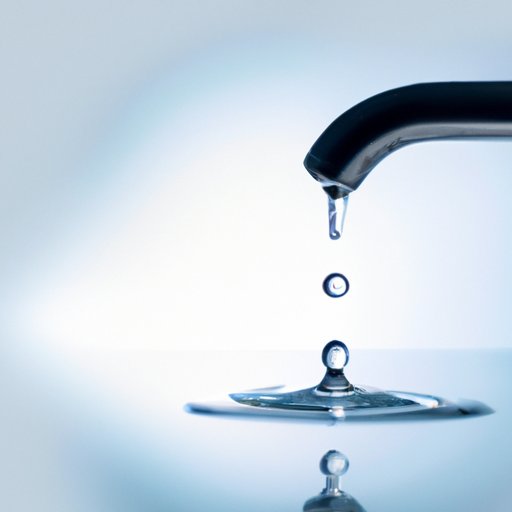
The Importance of Conserving Water
Water is one of the most important resources on earth, and it sustains all forms of life. Humans, animals, and plants all depend on water to survive, which makes it a precious resource that needs to be conserved. However, despite the importance of water, it’s easy to take it for granted and waste it. In fact, it is estimated that more than 1.2 trillion gallons of water are wasted annually in the United States alone. This waste has serious consequences on both the environment and our daily lives.
Small Changes That Make a Big Impact
There are several small changes that we can make in our daily lives that can help to conserve water. These small changes can add up, and over time they can make a big difference in reducing water waste.
1. Turning off the faucet while brushing teeth or washing hands
One of the easiest and most effective ways to conserve water is to turn off the faucet when brushing your teeth or washing your hands. Leaving the faucet running while doing these tasks can waste up to 4 gallons of water per minute. Simply turning off the faucet can save up to 200 gallons of water per month.
2. Collecting rainwater for outdoor use
Another way to conserve water is to collect rainwater for outdoor use. This is especially helpful during dry seasons or in areas where water is scarce. Collecting rainwater is easy and can be done by placing a barrel or container under a downspout. This water can be used to water plants, wash the car, or even flush the toilet.
3. Using a bowl to rinse fruits and vegetables instead of running water
When rinsing fruits and vegetables, it’s common to let the water run continuously. However, this wastes a lot of water. To conserve water, try using a bowl of water instead. Fill a bowl with water and rinse the fruits and vegetables in the bowl. This can save up to 150 gallons of water per month.
4. Using a dishwasher, only when it’s full
Dishwashers are a great way to conserve water, but only if they are used efficiently. Running the dishwasher when it’s half full wastes water and energy. Wait until the dishwasher is full before running it. This can save up to 100 gallons of water per week.
5. Using a broom to clean outdoor surfaces instead of a hose
Using a hose to clean outdoor surfaces such as patios, sidewalks, and driveways wastes a lot of water. Instead, use a broom to sweep away debris. This can save up to 80 gallons of water per use.
6. Using a shower timer
Showers can also be a significant source of water waste. Consider using a shower timer to limit shower time. Showers typically use 2.5 gallons of water per minute, so reducing shower time by just a few minutes can save a significant amount of water over time.
Bigger Changes That Can Help Conserve Water
In addition to small changes, there are also several larger changes that can be made to conserve water. These changes may require an upfront investment, but they can pay off in the long run.
1. Fixing leaky faucets and pipes
Leaky faucets and pipes can waste a significant amount of water. In fact, a leaky faucet can waste up to 3,000 gallons of water per year. Fixing leaks is a simple and effective way to conserve water and save money on utility bills.
2. Upgrading appliances to water-saving models
Upgrading appliances such as toilets, washing machines, and dishwashers to water-saving models can significantly reduce water use. Water-efficient appliances use less water per use, which can add up to significant water savings over time.
3. Planting drought-resistant plants
Landscaping can also be a significant source of water waste. Consider planting drought-resistant plants that require less water. These plants can survive with less watering and can help to conserve water.
4. Upgrading landscaping with mulch or hardscaping to reduce watering needs
In addition to planting drought-resistant plants, consider adding mulch or hardscaping to landscaping to reduce watering needs. Mulch helps to retain moisture in the soil, which means plants require less watering. Hardscaping, such as adding rocks, paths, or retaining walls, can reduce the amount of grass, which requires a lot of watering.
The Benefits of Conserving Water
Conserving water not only has environmental benefits, but economic and personal benefits as well.
1. Lower utility bills
One of the most significant benefits of conserving water is lower utility bills. Using less water means paying less money for water and wastewater services.
2. Reduced demand on natural resources
Conserving water can also help to reduce the demand on natural resources. Water is a finite resource, and overuse can lead to water scarcity and environmental damage.
3. Improved ecosystems
Conserving water can also help to preserve and improve ecosystems. Many ecosystems, such as wetlands and rivers, rely on a steady supply of water to remain healthy. Conserving water can help to ensure that these ecosystems remain intact and healthy.
4. Demonstrating personal responsibility and leadership in the community
Conserving water is not just about personal benefit, but it’s also about demonstrating personal responsibility and leadership in the community. By conserving water, individuals can inspire others to do the same and create a culture of water conservation.
Conclusion
Conserving water is a critical responsibility that we all share. By making small changes in our daily lives and investing in larger changes, we can all contribute to conserving water and protecting the environment. It’s important to spread awareness about the importance of water conservation to friends, family, and the community, to encourage others to take action as well.




